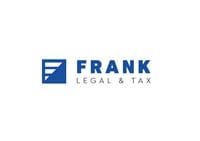News and developments
Liability of Shareholders in a Thai LLC
By definition, the liability of shareholders in a “limited liability company” is limited. However, in many countries case law has evolved that “pierces the corporate veil”. In this contribution, we will analyze whether the principle is upheld strictly in Thailand, or whether there are significant exemptions.
Under Thai law, there are theoretically two possible ways to still hold shareholders liable for damages: under the Thai Civil and Commercial Code (“CCC”) and under the Consumer Case Procedure Act B.E. 2551 (“CCP”).
Thai Civil and Commercial Code (“CCC”)
According to Section 1096 of the CCC, a limited company is formed with capital divided into equal shares, and the shareholders’ liability is limited to that amount unless there are unpaid shares held by them. Therefore, if the company’s capital is fully paid up, it will not be possible for the shareholders to become personally liable for damages incurred by the company.
In the case that the shares are not fully paid up by each shareholder, it may be due to having insufficient funds to make the payment. It may also be the case that there was no call for payment of the respective shares by the director or the General Meeting did not call the shareholder for the payment of the respective share. It should be noted that in most cases, the shares are fully paid up.
Consumer Case Procedure Act B.E. 2551 (“CCP”)
Under the provision of Section 44 of the CCP, in the case, that action is brought against a company, and it appears that the company operated or was incorporated in bad faith, used deceitful behavior against consumers, or embezzled company property to have sufficient funds to satisfy obligations, the plaintiff or the court may summon shareholders, directors or persons receiving the embezzled property to be joint defendants unless they are proven innocent.
One of the disadvantages of legal action based on this Section is that the company must first be sued in a consumer case. The plaintiff is further required to file a petition, or the court may, in its discretion, call upon the shareholders to become joint defendants in the case. The shareholders may be called upon regardless if they have fully paid for their shares or not. However, if they prove their innocence, they may not be liable at all.
From our research, there is almost no case law related to the above. So far only one Supreme Court Decision, decision no. 5282/2562 that used Section 44 of the CCP to determine the case. The fact of the case is that Defendant 1, the company, failed to repair private roads in a development project properly; therefore, the plaintiff sued Defendant 1 for damages. Before the judgment could be rendered, Defendant 1 was adjudged bankrupt and was under full receivership by the Bankruptcy Court. The plaintiff then withdrew the case against Defendant. The plaintiff then used the provision of Section 44 to claim that Defendant 1 was operating its business in bad faith and Defendants 2 and 3, as the directors, should be held personally liable. The Supreme Court then ruled that the failure to repair the road was considered normal business conduct caused by negligence, not bad faith. Thus, by using Section 44, Defendants 2 and 3 were not personally liable.
The result of this Supreme Court Decision may be considered dissatisfactory because it shows that the provision of Section 44 may not entirely be practically applicable. Therefore, the provision has only little practical relevance. However, the case’s outcome of each case will entirely depend on its respective facts and the specific situation.
Conclusion
Under Thai law, there are only very limited possibilities to hold shareholders liable for damages, except for the case where capital has not been fully paid up. But in most companies, the shares by each shareholder are fully paid up upon subscription.
In theory, the CCP allows shareholders to be held personally liable as joint defendants with the company they hold shares in. But in order for them to be called to court, a case has to be filed against the company first, and the plaintiff or the court should file a request for the shareholder to appear in court as a joint defendant. In addition to that, the shareholders may not be liable if they can prove their innocence.
As a result, we note that it is very challenging to hold shareholders personally liable in a limited company and Thai law does not recognize the “piercing the corporate veil” concept.
Feel free to contact us if you have any questions.
